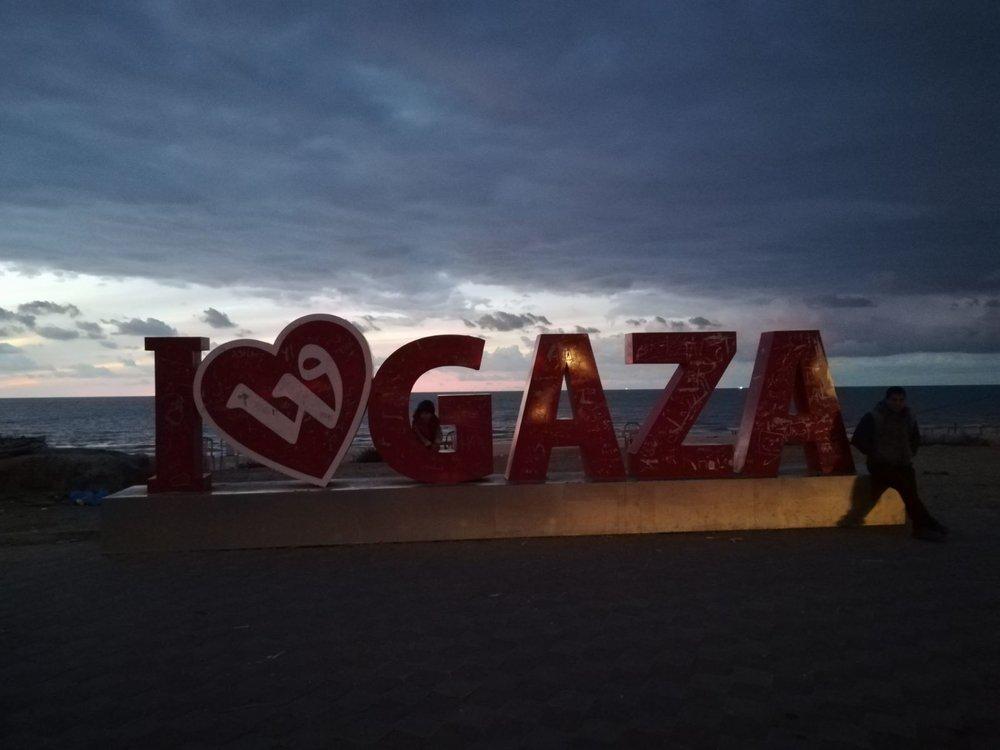Working in Palestine since 1989, in 2000 Doctors Without Borders began adapting its care to the changing needs of the people of Gaza. Its teams now offer post-operative care (dressings, physiotherapy and re-education) to almost 5,000 people suffering from burns or trauma injuries in the three MSF clinics. The wounds and accounts of our patients offer us a window into daily life in Gaza.
First off, Gaza means confinement. A strip of land 42 kilometres long and 12.5 kilometres at its widest, it takes just an hour and a half to drive from north to south.
Gaza is hemmed in by the sea to the west, a "security barrier"—a chain-link fence topped with barbed wire—to the east, while in the north a wall several metres high has been erected to prevent people from crossing the border. And yet another wall, this one underground, is under construction. This is home to close to two million people.
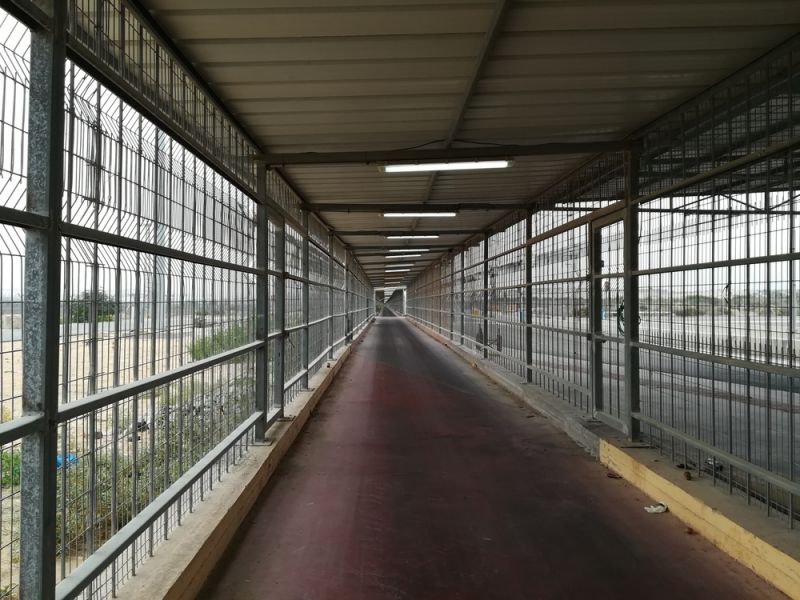
Many of Gaza’s inhabitants have never been able to leave, particularly since a blockade was imposed by Israel after Hamas won the Palestinian legislative elections in 2007. “I’ve only ever left Gaza once. It was for an operation in Egypt when I was 8. I don’t remember a thing!” says 22-year old Hassan, who was shot on the border in December.
Today still, the Israelis deliver exit permits extremely sparingly and, between 2016 and 2017, the number fell by 50%. According to OCHA, United Nations Office for the Coordination of Humanitarian Affairs, an average of only 240 people a day were authorised to cross the border in one direction or another during the six first months of 2017 —for business or educational purposes, medical reasons, or because they are members of international organisations. For everyone else, the journey is quite simply impossible. “We don’t have the right to travel like other human beings. But we are human beings”, insists Hassan.
Doctors Without Borders introduced a programme of reconstructive surgery in 2010 to address the lack of provision in care that has resulted from these restrictions on travel. Surgeons and anaesthetists come from other countries to assist our Palestinian nursing team with performing complex surgery not available in Gaza.
4 to 6 hours of electricity a day
The problems with electricity are a perfect illustration of the everyday hardship faced by people in Gaza. This deteriorated still further last spring because of an internal problem opposing the Palestinian Authority and Hamas. For several months, the Gazans were rationed to just two to three hours of electricity every 24 hours, and these were often during the hours of darkness.
At the time, several patients told MSF’s teams that their wives would get up in the middle of the night to prepare food and use the washing machine. “My wife’s a superwoman!” a patient exclaimed one day. Abu Abed is a medical advisor for MSF’s Gaza project. He told us his kids had to “make choices children shouldn’t have to make. Am I going to use these two hours of electricity to charge my cell phone? Watch a cartoon? Put some juice in the fridge?” Simply keeping food chilled became impossible in the summer when temperatures in Gaza easily exceed 30 degrees.
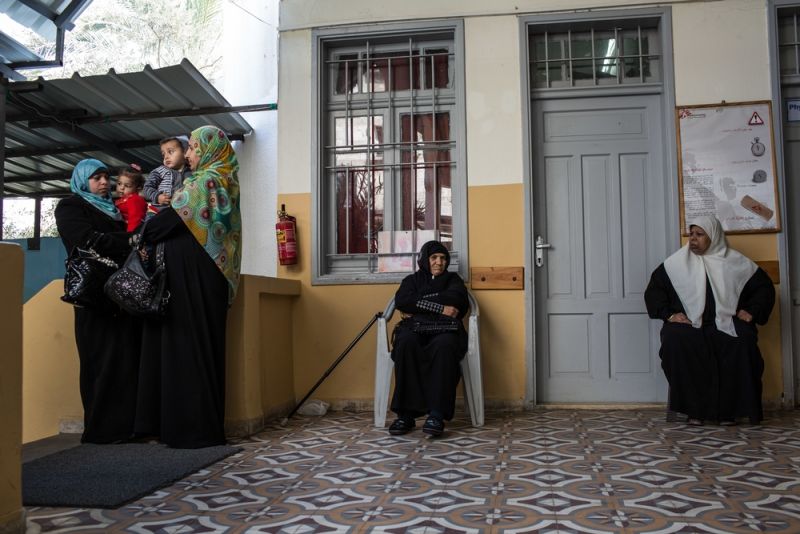
The situation has improved somewhat, but people still have to keep their homes going with four to six hours of electricity a day at most.
“During the hours when we have electricity, we try to do everything at once. So we rush, and that increases the risk to our children”, explains Ussaid’s grandmother. 14-month old Ussaid was admitted with burns to his hands.
35% of patients in MSF’s clinics are under the age of 5 years and 60% under the age of 15 years.
Living conditions that continue to deteriorate
Forced to live in isolation, they have to adapt and take what they can find.
But, for years now, living conditions in Gaza have continued to slowly deteriorate. From the outside perspective, almost all the buildings that were flattened during the 2014 offensive, have been rebuilt—principally due to international aid—, but a closer look reveals close to half of the population are food insecure. People have to get by as best they can and family solidarity has become one of the cornerstones of their ability to adapt and resist.
“When I don’t have enough money for food, I ask around. Sometimes my stepmother lends me 15 shekels. I feel so ashamed. But she says we’re family, that I’m like her son and we have to support each other,” says Abdel Raheem, a 30-year old patient admitted to an MSF clinic in Gaza.
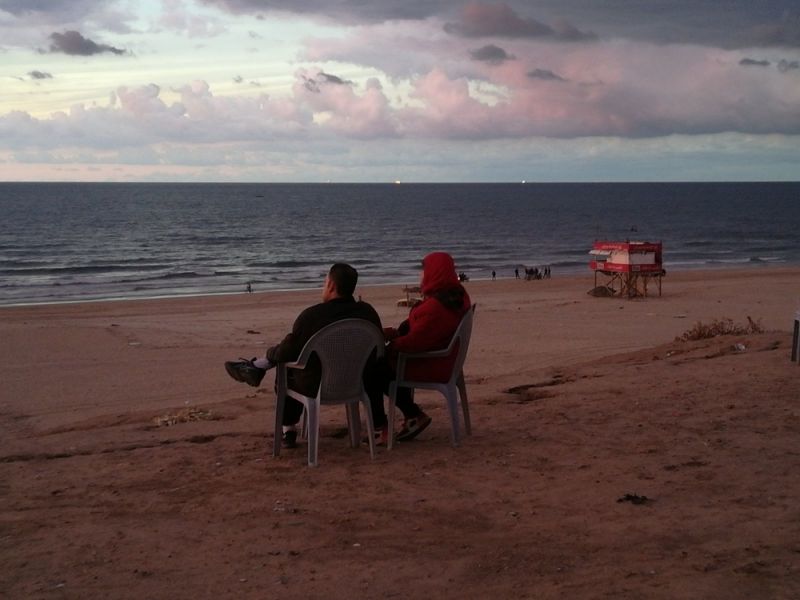
Obtaining clean water is a major problem for Gaza’s inhabitants. Over 95% of the underground water table is unfit for human consumption and tap water is too salty. Private water companies are able to deliver but this is only a small part of the solution.
The system of disposal and treatment of wastewater is also far from effective. Wastewater is piped into the sea, so people can no longer bathe in it. The sea, that could be a source of revenue for Gaza’s inhabitants, has it own artificially imposed limits—pollution and fishing restrictions enforced by the Israelis.
Frequent domestic accidents
Even so, life goes on in Gaza. Many families live in modest homes and meals are an opportunity to share convivial moments. Some people still cook and prepare tea on stoves or on fires on the ground. Many patients suffering from severe burns are referred to MSF clinics due to domestic accidents related to such practices. Two-thirds are caused by a boiling liquid.
Which is what happened to 15-month old Shahed three months ago. The entire contents of a teapot heating up on a fire fell on her during a family meeting. “ It’s heart-breaking to see our daughter like that. We haven’t made tea since”, says her mother. In the case of six and a half-year-old Asma, it was a pan of boiling water her father wanted to wash with that emptied on top of her.
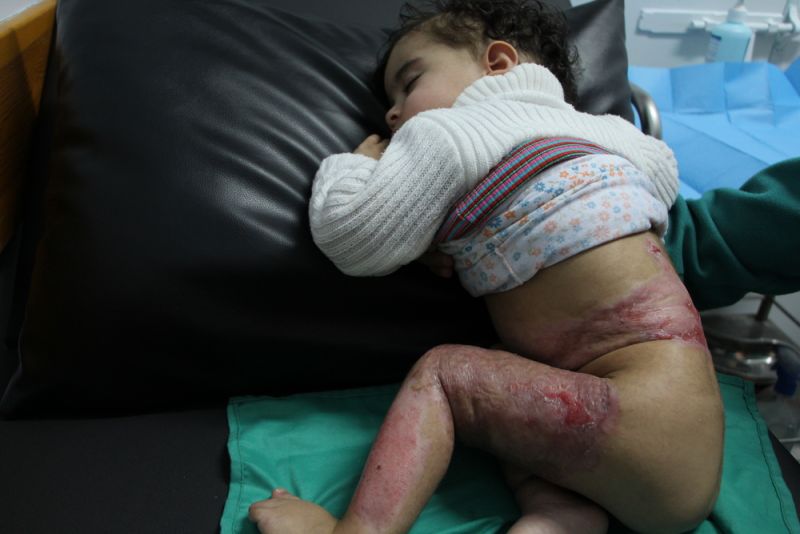
Find out more about MSF work in Palestine
